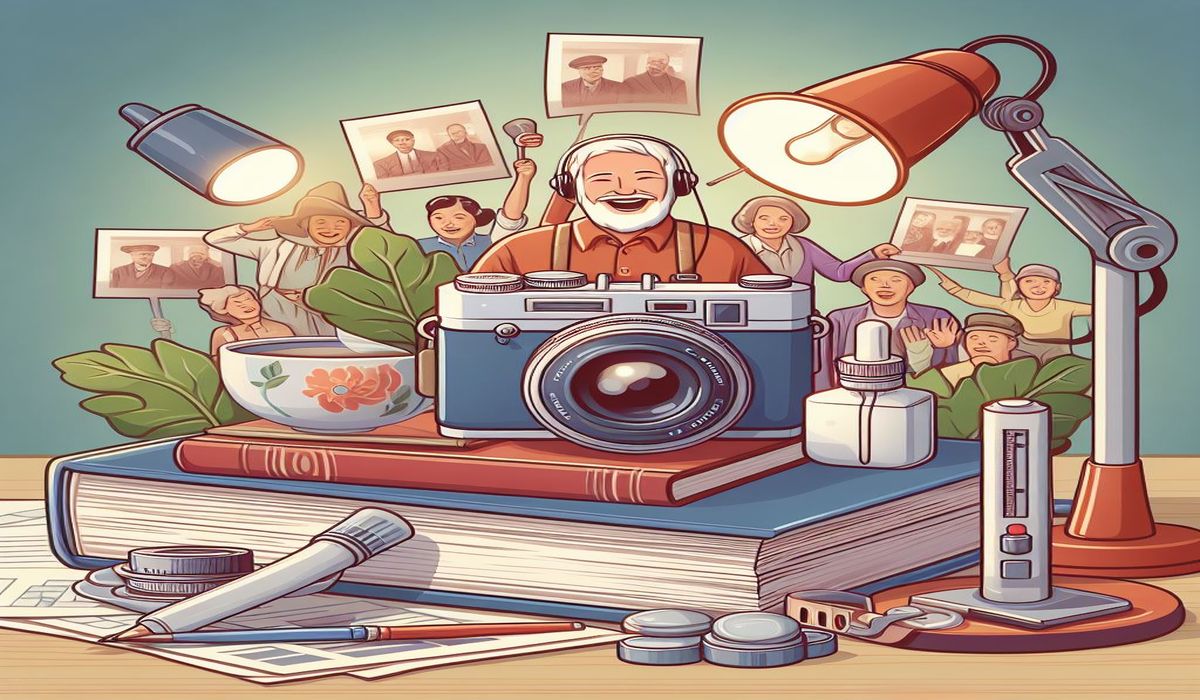Ever spend hours on the phone, enthralled by your grandma’s tales of the good ol’ days? Maybe you’re the friend everyone spills their secrets to. If you have a knack for getting people to open up and share their stories, then my friend, you have the golden ticket to a fascinating career in oral history!
Yes, you read that right. Your love for listening and getting the scoop can be transformed into a way to preserve the past, one juicy anecdote at a time. So, ditch the reality TV marathons and get ready to become a real-life history detective – minus the trench coat (probably).
Here’s how to turn your love for oral history into a sustainable path:
Sharpen Your Skillset

This just simply means improving your abilities to conduct successful oral history interviews and manage the collected information. Here are some aspects you can focus on:
Interviewing Skills: Interviewing skills are fundamental to a career in oral history. Hone your ability to ask open-ended questions, build rapport, and actively listen. Consider volunteering with local historical societies or museums that conduct oral history projects. By honing your interviewing skills, you become a skilled facilitator who can capture the essence of the interviewee’s story and create a valuable historical record
Archiving: Learning how to archive collected oral history data properly ensures these interviews are preserved in a safe and accessible format for future researchers and audiences. This involves understanding best practices for physical or digital storage, metadata creation, and long-term digital file maintenance. Learn how to become digital fluent as most oral histories involve digital recordings and multimedia elements.
Storytelling and Narrative Development: Transforming interview data into compelling historical narratives necessitates strong writing and editing skills. This process hinges on the ability to discern the core thematic content within an interview. By honing storytelling techniques, oral historians can effectively identify the central message or significance of the interviewee’s experience. This approach elevates oral histories beyond mere information dissemination. By crafting narratives that resonate with audiences, oral historians imbue their work with the power to evoke emotional engagement.
Workshops and Courses: Workshops and courses provide a comprehensive and structured learning environment. These programs effectively combine theoretical knowledge with practical exercises, ensuring participants gain a strong foundation in oral history methodology. Furthermore, workshops and courses offer invaluable expert guidance from experienced practitioners. This combination of theoretical knowledge, practical application, and expert instruction fosters a supportive learning community that accelerates the development of oral history skills. Information regarding relevant workshops and courses can be readily obtained from a variety of sources, including universities and colleges, online searches using keywords like “oral history workshops” or “oral history courses,” libraries and archives, and professional organizations such as the Oral History Association.
2. Explore the Job Market:
There’s more to oral history than academia! Here are some exciting career paths:
Oral History Project Manager: Lead oral history initiatives for museums, archives, or non-profit organizations.
Freelance Oral Historian: Contract your services to conduct interviews for documentaries, historical projects, or private clients.
Public Historian: Work in public history institutions like museums or historical sites, using oral history to create exhibits, educational programs, or digital resources.
3. Network and Build Your Brand:
Connect with the Oral History Association (OHA): Join the OHA, attend conferences, and participate in online forums to connect with professionals and learn about job opportunities https://oralhistory.org/jobs/.
Build an Online Portfolio: Showcase your skills by creating a website or online portfolio that highlights your interview experience, writing samples, and completed projects.
Volunteer Your Expertise: Offer your skills to local historical societies, community archives, or even family history projects to gain experience and build your network.
4. Consider Further Education:
While not always necessary, a Master’s degree in History, Public History, or a related field can give you an edge in the job market and equip you with advanced research and writing skills. Some programs even offer specific coursework in oral history methodology.
5. Remember, Passion is Key:
Building a career in oral history takes dedication and perseverance. But the rewards are immense. This multifaceted field offers opportunities to contribute to the richness of the historical record, amplify underrepresented voices, and connect with communities in a meaningful way.
As technology evolves and accessibility increases, the future of oral history is bright. It’s a field poised to capture a richer tapestry of the past, and your passion can play a key role in shaping this exciting future.
If you’re driven by a desire to preserve the past and share its narratives with the world, then a career in oral history might just be your perfect calling. So, go forth, be a champion for these voices, and let your passion for oral history guide you on a fulfilling career path.
